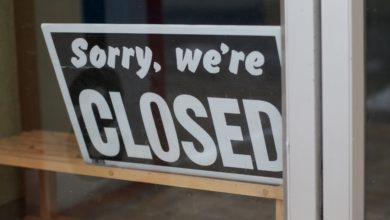Energy price cap to rise 54% from April
The price cap rise comes amid a ‘record’ increase in global gas prices, and is set to affect approximately 22 million customers

Hospitality bosses are braced for a spending squeeze after it was revealed the energy price cap is set to increase by 54% from 1 April amid a “record” increase in global gas prices, in a move that is set to affect approximately 22 million customers.
Energy regulator Ofgem announced that households on default tariffs paying by direct debit will see an increase of £693 from £1,277 to £1,971 per year, and prepayment customers will see an increase of £708 from £1,309 to £2,017.
The price cap was last updated in August of last year, with Ofgem noting that the current level fails to reflect the “unprecedented” rise in gas prices across the world, which has seen wholesale gas prices quadruple in the last year alone.
Jonathan Brearley, CEO of Ofgem, said: “We know this rise will be extremely worrying for many people, especially those who are struggling to make ends meet, and Ofgem will ensure energy companies support their customers in any way they can.
“The energy market has faced a huge challenge due to the unprecedented increase in global gas prices, a once in a 30-year event, and Ofgem’s role as energy regulator is to ensure that, under the price cap, energy companies can only charge a fair price based on the true cost of supplying electricity and gas.”
Ofgem is set to reveal further measures tomorrow (4 February) that will reportedly support the energy market by “increasing financial resilience” and giving companies the “flexibility to respond so that risks are not inappropriately passed on to consumers”.
The further measures include enabling Ofgem to update the price cap more frequently than once every six months in “exceptional circumstances” to ensure that it still reflects the true cost of supplying energy.
Speaking in the Commons today, chancellor Rishi Sunak said the government would also help take the “sting” out of the price hike through a series of support measures for households across the country.
He confirmed that households will be able to receive a £200 discount to their electricity bills from October, with the government meeting the cost in full, adding there are plans to pay back the discount in £40 instalments over the next five years.
In addition, households in bands A to D will be eligible for a £150 council tax rebate this April to help further mitigate the sharp rise in costs. Sunak confirmed the rebate will not need to be repaid, adding that the move will reportedly benefit around 80% of homes in England.
Furthermore, Sunak confirmed that local authorities will be given a discretionary fund of around £150m to further help lower income households in their jurisdictions. In addition, the government is set to expand the eligibility for the Warm Home Discount Scheme.
Commenting on the news, Matthew Fell, CBI chief policy director, said: “The rise in the price cap was inevitable but will pile more pressure on squeezed household incomes.The Government is right to focus on the most vulnerable customers but must urgently work in partnership with energy suppliers to ensure these measures are effective.
“Short-term support must go hand-in-hand with a revamped retail energy market, setting a higher bar for market access and tougher stress testing for suppliers. Businesses too have been impacted by high-cost pressures, so steps to protect cashflow for smaller firms and heavy industry should follow today’s announcement.”
He added: “Government must also step up the level of investment and pace of delivery in home energy efficiency improvements and push forward with ambitious plans to progress the clean energy transition.”
The news comes as a study by Nielsen IQ found that 46% of UK consumers stated inflation and cost of living as their top concerns in January 20222 – up from 33% in November 2021.
In terms of where UK consumers expect to be spending more in 2022, utilities, such as electricity, gas and phone bills (47%) was the top result for many Brits.
Rachel White, MD, NielsenIQ UK and Ireland, said: “The last two years have seen an increased level of uncertainty and it is not surprising that in this current economic climate consumers are concerned about the cost of living.
“Priorities are changing and whilst a meal out, takeaway or holiday may have once been a straightforward decision for some, consumers will be looking to prioritise and balance what is necessary versus what is nice to have. The ability to meet these new consumer needs will be key for manufacturers and retailers in 2022.”












